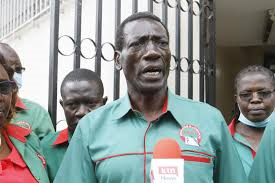[…]
Read moreTag: KNUT
Push KCPE, KCSE exams to 2021, open schools when it is safe- Lobby advises
[…]
Read moreKNUT Calls for Legal Reforms to Protect Teachers’ Benefits Following Dismissal
[…]
Read moreLatest TSC News: Commission gives details on T-Pay, Training of teachers on CBC and relationship with teacher unions
[…]
Read moreKnut, Kuppet in trouble as TSC signs deal with new teachers’ union
[…]
Read more